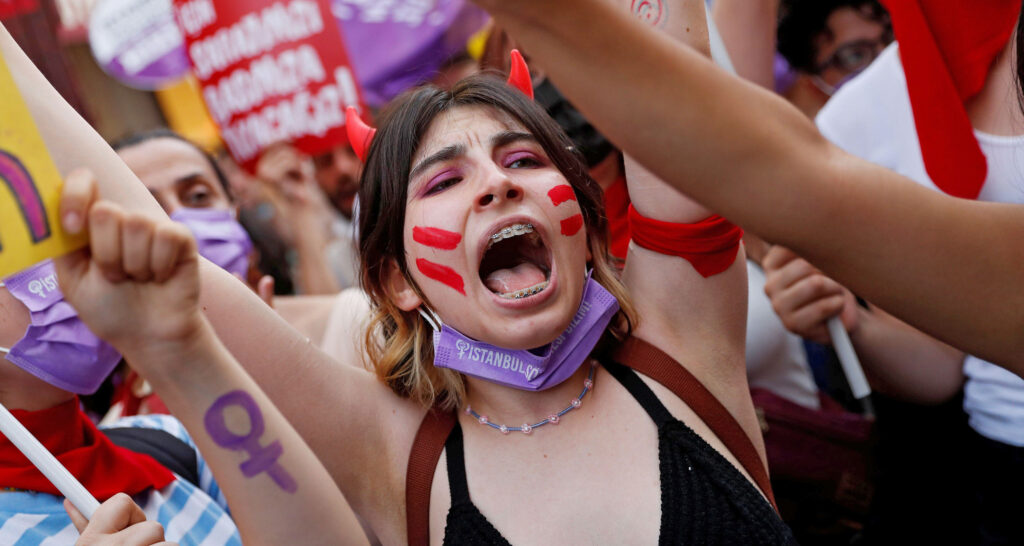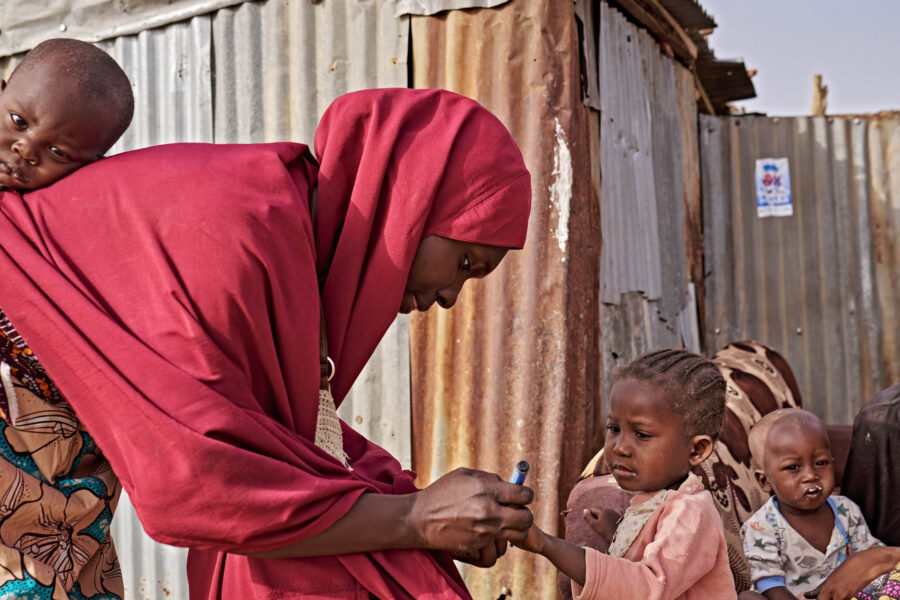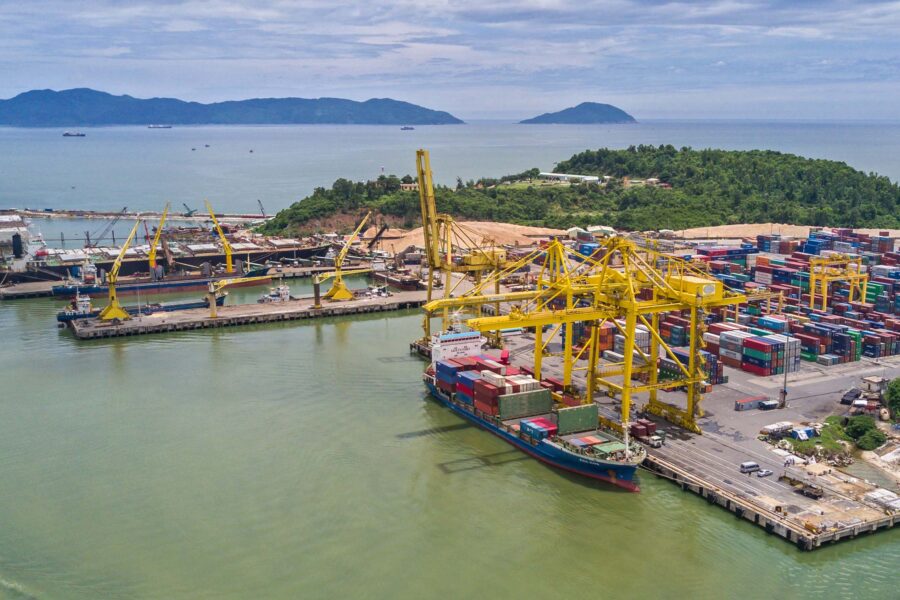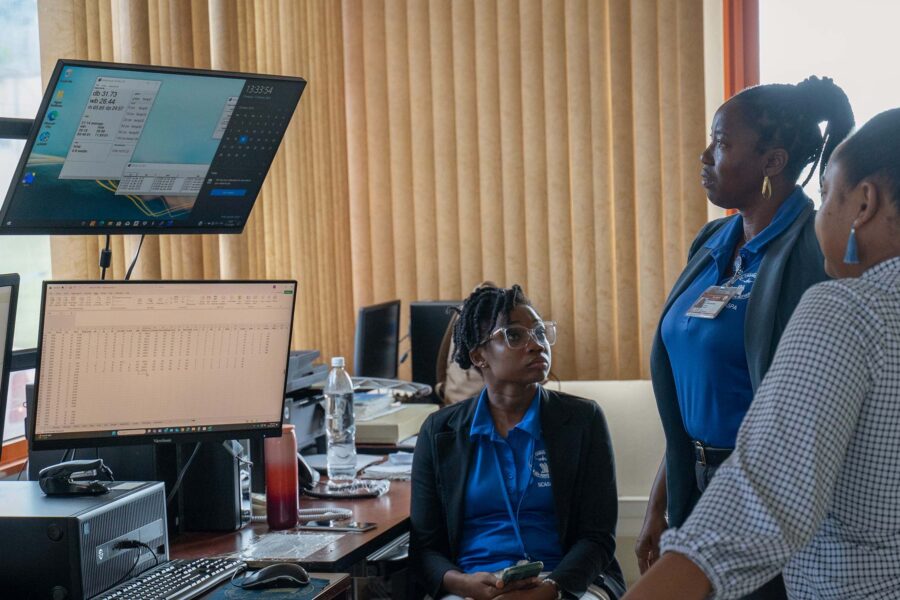Protecting open societies
Over the last decade, numerous democracies have been eroded and populist leaders have dismantled the protections against authoritarianism. We need urgent action – at local, country, and international levels – to ensure that societies achieve equitable and sustainable development for all people everywhere
Human rights

Can democracy deliver? This is perhaps the defining question of an era marked by fears that we have reached “peak democracy” and may already be in an age of authoritarianism.
Many of us will be tempted to answer “yes” instinctively. The assertion that development requires an open society not only seems self-evident, but is backed up by a wealth of empirical studies. Yet detractors, too, have a ready answer: China. The country’s economic growth is often cited as evidence that democracy is not a prerequisite for development. Without China, the argument goes, the world would not have met the Millennium Development Goal of halving extreme poverty. Over the past 40 years, the number of people living below the international poverty line in China has fallen by nearly 800 million – almost three-quarters of the total global reduction – and the country is poised to become the world’s largest economy.
And so the appeal of the “China model” endures, despite evidence to the contrary and a daily digest of human rights abuses. Beijing is exporting its vision of “development first” in Asia and Africa through the Belt and Road Initiative, offering finance untethered to the governance reforms that other donors demand. It has found some resonance in the West too, with those who believe that short-term electoral cycles make it harder for democracies to deliver on longer-term objectives such as the Sustainable Development Goals (SDGs), and to drive the large-scale economic and social change needed to avoid climate disaster. The election of unstable authoritarians in countries from Brazil to the United States has also generated understandable, if wrong-headed, sympathy with Chinese state media’s take on the inherent risks of democracy.
Beyond China, the evidence can seem inconclusive. A comparison of the Democratic Republic of the Congo with Mauritius – the highest-ranking African democracy, according to the Economist Intelligence Unit – implies that democracy supports development. The latter transformed itself post-independence from a low-income agricultural society to a high-income diversified economy. The former, under military rule, did not. However, authoritarian Singapore’s leapfrogging of Sri Lanka’s democratic laggard tells a different story.
Yet a closer reading of the evidence shows these contradictions are superficial. Economic growth is just one aspect of development, and this narrow focus has been supplanted by global frameworks – from the concept of human development popularised in the 1990s, to the adoption of the 2030 Agenda. In this light, the China model is far from a shining success, having created a highly unequal and carbon-intensive society, which the regime itself has identified as a risk to its future prosperity and security. Minority communities have been left behind, at best, and brutally repressed at worst. This has played out in Sri Lanka too, where the tyranny of the majority has shown that democracy is much more than the holding of elections.
The real narrative is that both democracy and development must be treated as ongoing processes that encompass economic, political, social, legal, and normative elements. Democracy must be anchored in human rights, rule of law, good governance, strong institutions, and vibrant civil society. All of this requires economic and human development to support the tools needed, from quality education to an effective justice system. Similarly, for development to be equitable and sustainable, the active participation of recipient populations is essential. Consultation is needed to sequence development interventions in a context-appropriate way, and to calibrate the necessary trade-offs.
But this narrative is not cutting through. To date, democratic and authoritarian leaders alike have failed to deal with COVID-19, prevent climate disaster, or fix the global financial system. The erosion – and in some cases erasure – of development gains has contributed to a crisis of trust and a resurgence of populist leaders. Now, Russia’s brutal invasion of Ukraine has been framed as an assault on democracy itself.
Whether or not you buy into that framing, it is clear that the principles upon which the SDGs depend – the rule of law, effective institutions, inclusive decision-making, and global cooperation – are under attack as a result of multiple, intersecting crises.
The alarming decline in democratic freedoms has spared few countries over the past two decades. Freedom House has warned that “autocracy could overtake democracy as the governance model guiding international standards of behavior,” while CIVICUS has said that just 3.1% of the world’s population now lives in countries with “open” civic space.
Last year (2021) alone saw:
- military coups in Chad, Guinea, Mali, Myanmar, and Sudan
- the Taliban seizing control of Afghanistan
- elected authoritarians in countries such as Brazil, India, Rwanda, and Turkey attack the rule of law and their critics
In the United States, Trump supporters stormed the capitol when he lost the election, while Johnson’s UK is clamping down on human rights.
And this year is likely to be worse, as the economic fall-out from Russia’s war threatens to destabilize countries already trammelled by COVID-19, climate, and debt. While no country is immune, the risk is even greater in authoritarian states. As Open Society’s President has argued, “Sri Lanka is an omen.”
So, what is the solution? Quite simply, democracy must deliver. Elected leaders must set out a clear narrative that democratic governance is not only about the ballot box, not only about civil and political rights, but that it is the only way to ensure that development progress is equitable, sustainable, and – ultimately – stronger. And they need to move from warm words to action.
Prioritising SDG 16 (peace, justice, and strong institutions) is a good place to start, for instance, by removing discriminatory laws that hinder women’s economic participation, ensuring access to justice, tackling corruption, and strengthening open government initiatives to increase trust, accountability, and inclusion. We cannot allow the crucial role of democratic governance to be downplayed in the 2030 Agenda. Democracy is only mentioned once in the document and not explicitly under any goal – a climbdown from previous UN frameworks that reflects greater tolerance for pandering to powerful authoritarian states. But SDG 16 offers a means to advance the tools and principles that underpin democracy from the vantage point of leaving no one behind.
As the extent of our interdependence becomes ever more apparent, local action needs to be backed up at the global level. This is particularly urgent as autocracy is going viral . From the murder of Saudi journalist Jamal Khashoggi in Turkey to Russia’s Wagner Group propping up dictators in Africa and the Middle East, repression is transnational. Democracy promotion, meanwhile, comes with the heavy baggage of military intervention and failed state-building efforts.
Instead, a delivery approach to international democracy efforts would ensure that governance, legal, social, and economic reforms are sequenced in a way that balances security, development, and human rights concerns and – crucially – results in tangible progress for communities on the ground. Similarly, action to address the current confluence of crises must be focused on delivering for all people, everywhere, and resist attempts to fall back into Cold War divisions, with autocrats courted in the name of (energy) security and aid tied to political agendas.
In the short term, this should include a package of bold but achievable measures to prevent terminal derailment of the SDGs, including:
- movement on the transfer of high-income country special drawing rights to low and middle-income countries
- progress on access to COVID-19 tests, therapies, and vaccines
- relief for states most vulnerable to food, climate, financial, and fuel insecurity
In the longer-term, we need to inject fresh energy into stagnant debates on making our multilateral institutions more democratic – from increasing Global South representation in leadership positions and governing boards, to sustained mechanisms that involve civil society and other stakeholders in decision-making, delivery, monitoring, and evaluation.
The adoption of the SDGs in 2015 was intended to herald a new approach to development: a definitive shift from the narrow, growth-focused goal-setting of previous eras to transformative social, economic, environmental, and structural change. At the halfway mark for achieving the Goals, the stakes are even higher, as development and democracy hang in the balance. We cannot fail again.





